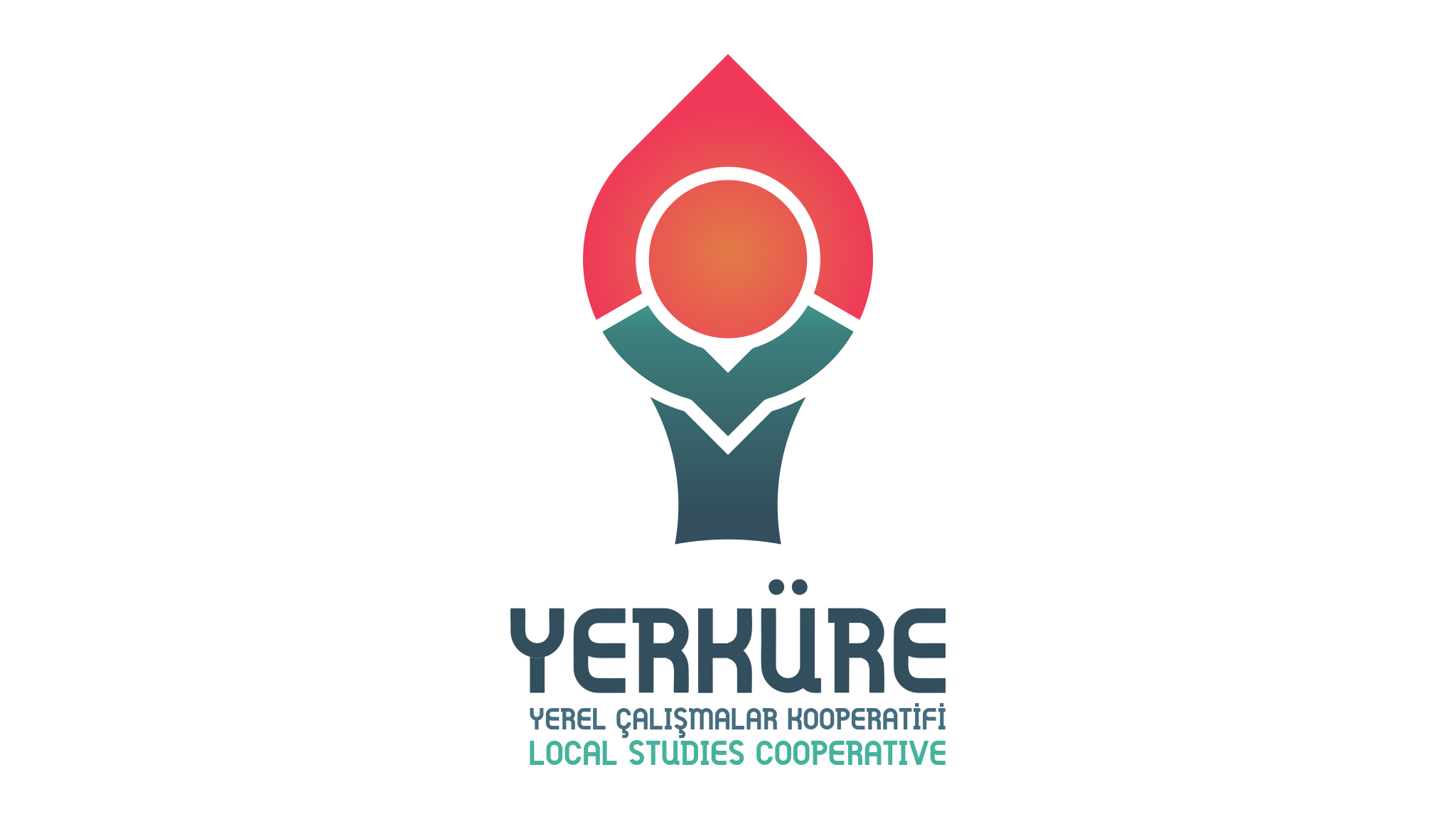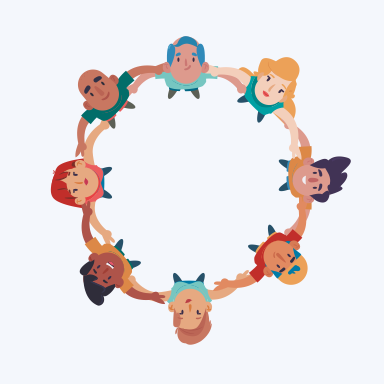
We are a scientific research and development cooperative that works for an ecologically and socially sustainable world where biological and cultural diversity is preserved and enriched, and where all beings share life fairly.
Producing data-based knowledge for institutions, academia and policy makers that operate in the national and international arena regarding the local, rural, urban and all other spaces of life,
Contributing to current conceptual discussions in the fields of agriculture, food and ecology,
Contributing to the solutions for global concerns such as preventing ecological destruction and increasing social welfare with a holistic perspective,
Developing and implementing projects on the protection of nature, agroecology/ biodiversity and cultural diversity together with companies, local governments, grassroots organizations, public institutions, and other organizations that are for the public interests,
Strengthening institutional capacities of all kinds of initiatives, local governments, producers and consumer organizations that approach sustainability problems with ecological, rights-based and gender equality concerns,
Creating mechanisms that combine local and academic/scientific knowledges for social and ecological benefit,
Designing and implementing sustainable programs, models, projects, and plans that would contribute to the eradication of rural poverty, and to the creation of new possibilities for a decent life.
The earth is our local; home for all living beings.
We stand by nature against the destruction of ecosystems.
We reject all forms of discrimination and
violence based on sex, gender, ethnicity,
class, faith, age, disability, and other related derivations.

Social welfare can be achieved with holistic and ecological approaches, and with local and organized dynamics.
We think and act with a rights-based approach to eliminate rural poverty.
We need solidarity, not competition, to make local
and rural life sustainable, and to enrich its economic,
cultural, social, historical, political and ecological values.
We believe in transparency, openness, honesty and
accountability to the public in the work and in the research
activities we carry out as well as our fundraising and
financial management practices.
We give importance to the fact that the source, the transfer,
publication and dissemination of the information we use
and produce are open and transparent,
We consider monitoring, evaluation, feedback, complaints
and all other input as learning that will enable us to make
changes in our strategy.
While we care to share information on who we are, what we do,
how we make our decisions, what our resources are and that
the results of our work are shared with the public in a timely
and adequate manner, we use clear and open procedures that
respect privacy rights and protect personal data.
We adopt the universal principles of cooperatives.
We work for supporting and spreading a democratic,
egalitarian, socially and ecologically sensitive cooperativism.
We are a non-profit, social impact oriented enterprise that
adopts social benefit as a principle in its activities,
takes into account the needs and common interests of its partners.
We believe in continuous learning.
Accuracy: We do not distort or change data we gather for the benefit of any person, institution, focus or species.
Freedom: We do not allow scientific research to be restricted externally
or by self-control/censorship mechanisms for any reason.
Responsibility: We take full responsibility for the possible effects
of our work and research on people and life on earth.
Honesty: We carry out research in a way that fully meets
the requirements of the scientific methods we prefer,
and we present our findings in a complete, clear and honest manner.
Collaboration: We are open to collaborate with all researchers
who work in the same fields with us, and benefit from
knowledge that has been produced by others in accordance
with ethical procedures.
Attentiveness: We ensure that the parties of the work know
clearly the expectations regarding the nature of the work,
the way it is carried out and all the outputs that will be obtained
in case of successful completion of that work.
Atakan Büke is a postdoctoral researcher at Leipzig University, Institute of Anthropology. He holds a Ph.D. and M.Sc. in Sociology from Middle East Technical University (METU), and a bachelor’s degree in Business Administration (METU). He was a visiting researcher at the Department of Development Sociology at Cornell University in 2014-2015. Informed by social theory, development studies, and critical agrifood studies, his research interests are in the areas of food security, food sovereignty, agrifood movements, food regime analysis, and agrarian/peasant questions. He also produces adult education content and training materials in different areas.
Aylin Topal is an Associate Professor of the Department of Political Science and Public Administration at Middle East Technical University. Previously, she was a Visiting Scholar at Oxford University, Harvard University and Pittsburgh University. She has published several articles and chapters in edited volumes on regional, urban and rural development, urban and rural movements, poverty alleviation, social policy, micro-credits and housing finance in Turkey and Mexico.
Derya Nizam is assistant professor of Sociology at Izmir University of Economics, Turkey. She received a Bachelor and Master degree in Sociology from Bogazici University, Turkey and a Phd degree in Sociology and Social Policy from the University of Sydney, Australia. Focusing on agricultural and rural transformation, she studies geographical indication systems as an alternative rural development paradigm. She has been awarded for Ronald Wimberley Best Graduate Student Paper by the USA Rural Sociological Society in 2012. She has previously worked at Bogazici University, Istanbul Bilgi University and The University of Sydney before joining Izmir University of Economics in September, 2016.
Ecehan Balta received her undergraduate degree from the Department of Sociology at METU. She has a master’s and doctorate degrees from Ankara University, Public Administration and Political Science (Political Science). She writes projects and conducts research in various fields from women’s empowerment to reproductive health, from employment to rural “development”. In addition, she develops adult education content in different fields and gives training herself. She has studies in areas such as strategic plan preparation, scale development, impact and satisfaction assessment.
M. Fatih Tatari is a PhD. Candidate in Anthropology at University of California, Davis. Fatih holds a bachelor’s degree in Economics and a master’s degree in Sociology from Boğaziçi University. His research interests are agri-food economies and ecologies, pastoralism, dairy farming, food sciences and technology. He has been involved in various projects on rural development, especially on documenting practices of local-traditional production practices.
Murat Bayramoğlu graduated from London Metropolitan University. He worked as the coordinator of rural development projects in Ardahan and Kahramanmaraş. He led the rural development program of Özyeğin Foundation for 10 years. He still continues his studies on research and certificate program designs at Özyeğin University Sustainability Platform. He’s the co-editor of “Local and Rural Development from the Sustainability Perspective”. He also directs documentary films.
Olcay Bingöl, graduated as training specialist from Ankara University had the opportunity to work as a campaigner and trainer in Europe, the US and in Turkey in several civil society organisations both in professional and volunteer bases since 1998. Currently she is working as a policy officer at the regional office of La Via Campesina in Brussels; European Coordination Via Campesina (ECVC), a social movement, which brings together 182 peasants’ organizations around the world.
Orkun Doğan is a PhD. Candidate in Economics at Istanbul Bilgi University. His research interests are political economy, development studies, ecological and agricultural economics. Orkun holds a bachelor’s degree in Economics from Boğaziçi University, and master’s degree in specialized public economic analysis from Barcelona Graduate School of Economics. He has worked in various research projects on rural development, agricultural organizations, and agricultural policies.
Yerküre Cooperative produces data- and scientific research-based knowledge on local, rural and urban space for policy-makers, academics, and other national and international actors.

18.05.2024
Sevgili Ortağımız,
Yerküre Yerel Çalışmalar Sosyal Kalkınma Proje Danışmanlığı Bilimsel Araştırma Geliştirme Kooperatifimizin 2023 yılı Olağan Genel Kurulu 21 Haziran 2024 tarihinde Genel Merkezimizde saat 10:00’da çoğunluklu olarak yapılacaktır. Çoğunluk sağlanamadığı takdirde çoğunluksuz ikinci toplantının aynı yer ve saatte 28/06/2024 tarihinde yapılmasına karar verilmiştir. Genel Kurul gündemi mektup olarak posta adreslerinize iletilmiştir.
Kooperatifimizin yönetim kurulu olarak Genel Kurulumuza katılımınızın önemli olduğunu, katılamadığınız takdirde dilerseniz vekaletinizi genel kurula katılma hakkı bulunan bir başka ortağımıza verebileceğinizi hatırlatmak isteriz.
Yerküre Yerel Çalışmalar Kooperatifi’nin çalışmalarını tüm ortaklarımızın akıl ve iradesiyle daha iyi yerlere taşıyacağımıza olan inancımızla, hepimize sağlıklı günler diliyoruz.
Yerküre Yerel Çalışmalar Kooperatifi
Yönetim Kurulu
